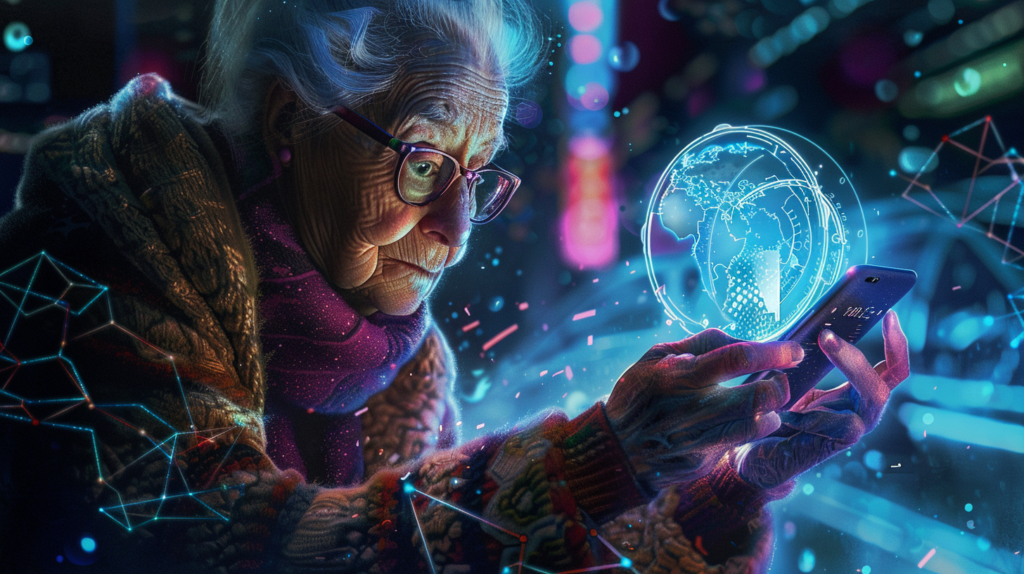VERIDIA – In an era where technology permeates every aspect of life, it now extends beyond death itself. Veridia, a city known for its technological advancements, has pioneered the concept of the “digital afterlife,” transforming how people manage and preserve their legacies after they pass away.
The Digital Legacy Initiative (DLI) launched in Veridia provides a comprehensive platform for individuals to curate and control their digital presence posthumously. This includes everything from social media accounts and personal messages to digital assets and online memories.
Dr. Lucas Farnsworth, the lead developer of the DLI, explains, “We live in a digital world where our online presence is an extension of ourselves. The Digital Legacy Initiative allows individuals to decide how they are remembered and what happens to their digital assets after death.”
One of the key features of the DLI is the creation of interactive digital avatars. These avatars, generated using artificial intelligence and machine learning, can mimic the personality and communication style of the deceased. Friends and family can interact with these avatars, seeking comfort and maintaining a connection with their loved ones.
“My mother passed away last year, but through her digital avatar, I can still have conversations with her,” said Sarah Thompson, a resident of Veridia. “It’s incredibly comforting to hear her voice and get her advice, even though she’s no longer physically here.”
The DLI also offers services for managing digital assets, such as cryptocurrency, online banking accounts, and digital property. Users can set up automated systems to transfer these assets to designated beneficiaries, ensuring that their digital wealth is distributed according to their wishes.
Additionally, the initiative provides tools for creating digital memorials. These memorials can include photos, videos, written memories, and other multimedia elements, allowing loved ones to celebrate the life of the deceased in a personalized and meaningful way.
The impact of the DLI extends beyond individual benefits. Legal frameworks in Veridia have evolved to support digital inheritance and legacy management, setting a precedent for other jurisdictions. Lawmakers are working to address the ethical and privacy concerns associated with the digital afterlife, ensuring that the system is secure and respects the wishes of the deceased.
Critics, however, have raised questions about the potential for misuse of digital avatars and the emotional implications of interacting with them. “We must tread carefully to ensure that this technology is used ethically and that it truly serves the needs of those left behind,” said Dr. Angela Rivers, an ethicist specializing in technology and society.
Despite these concerns, the Digital Legacy Initiative has gained widespread acceptance in Veridia. Many see it as a natural evolution of how we manage our lives and relationships in the digital age.
“We believe that everyone deserves to have control over their legacy,” Dr. Farnsworth emphasized. “The DLI empowers people to shape how they are remembered and ensures that their digital presence is handled with care and respect.”
As other cities and countries look to Veridia’s example, the concept of the digital afterlife is poised to become a standard part of how societies handle death and remembrance in the 21st century. The initiative stands as a testament to the power of technology to transform even the most personal and profound aspects of human experience.

